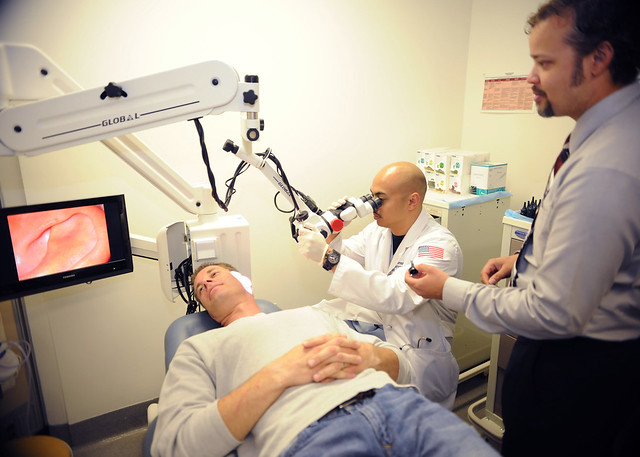Governmental healthcare has been a hot topic in the news over the past few years, but many people forget that government health insurance already exists in the form of Medicaid and Medicare. These are two forms of governmental insurance that have been in existence for a long time, and many citizens are eligible for them. Unfortunately, as with any type of insurance, some less-scrupulous individuals try to defraud the system. These behaviors can prove to be dangerous, so everyone should understand these insurance programs and fraudulent activities against them.

Image src: Flickr
Governmental Insurance Fraud
Medicare and Medicaid, though both government run programs, are two distinct entities. Medicare, which is handled by the Federal Government, is an insurance program that covers people over the age of 65. Additionally, people who are disabled or on dialysis are also covered. Medicare doesn't consider a person's income, but there is a chance that small premiums or deductibles may be required.
Medicaid, on the other hand, is an assistance program meant to help low-income individuals from any age group. Individuals usually pay nothing, neither deductibles nor premiums, for this program. Medicaid falls under federal guidelines but is controlled on state and local levels.
Medical practitioners who perform services send their bills directly to the government for reimbursement through Medicaid or Medicare. Sadly, this leaves the door open for fraudulent behavior. It's not as if the government stands over a doctor's shoulder to ensure they're performing the services they're claiming to, so many dishonest medical professionals see this as a quick way to get free money.
Common Types of Fraud
There are several ways that a duplicitous individual can commit fraud within the Medicare or Medicaid systems. One of the most common methods is billing the system for a service that was never rendered. An example of this would be billing for a blood test when one was actually never performed. Additionally, some patients have private insurance as well, and doctors will sometimes try to bill both their public and private insurer, also known as double billing, for the same treatment.
Some medical offices also engage in what is known as "upcoding." This is the process of charging for something more complex than what actually took place. A doctor's office, for instance, could charge Medicaid for an hour-long visit when all they did was a quick checkup. One of the more dangerous forms of fraud, however, is performing unnecessary treatments. As explained below, this fraudulent activity can turn deadly.
Individuals as Victims
Though it seems as if only the government would be a victim to Medicare and Medicaid schemes, innocent patients can also face serious consequences. Unscrupulous medical professionals, as mentioned earlier, will perform unnecessary procedures in order to gain profit. Unfortunately, some of these procedures can be excessively dangerous.
One American doctor, for instance, performed 750 heart catheterizations that were later deemed medically unnecessary. During his 10-year-long scheme, two patients actually died from the procedure. The doctor found these patients amongst the poor and homeless and convinced them, by offering monetary incentives, to feign certain symptoms so that he could justify the dangerous procedure.
For those who think that they may have been used to defraud governmental insurance programs, it's important to speak with a local attorney knowledgeable about fraud against the government. For example, if a person lives in Chicago, IL then they should seek the counsel of a whistleblower attorney in the Chicago area who is equipped to inform a client of their rights. Under the False Claims Act, anyone who reports fraudulent activity against the government is entitled to up to 30 percent of what the government recovers when it takes the offending fraudsters to court. In the case of the aforementioned doctor, this would've been up to 30 percent of the $16.5 million he was forced to pay.
Medically unnecessary procedures aren't just dishonest, they can be flat out dangerous. Unfortunately, deceitful medical practitioners engage in this and several other types of insurance fraud on a regular basis. These behaviors usually never stop until the offending party is brought to justice, and the best chance of this happening is for a patient to report any suspect claims to their government insurer. Luckily, under America's False Claims Act, the reporting party, also known as a "whistleblower," is entitled to a reward for their help.
About Author: Freelance legal writer Lisa Coleman writes to share the difference between medicare and medicaid and encourages anyone who has been witness to acts of fraud within the healthcare system to contact an attorney. The Attorneys at Goldberg Kohn Ltd, found online at http://www.whistleblowersattorneys.com/, are Chicago-based whistleblower representatives who are committed and equipped to represent any client who has been witness to government fraud.